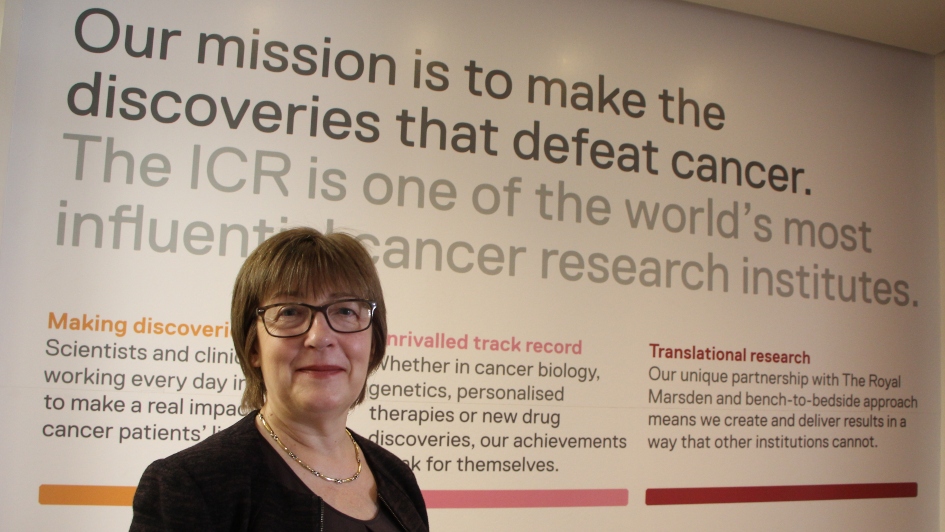
Rising to the challenge
The pandemic has been one of the greatest challenges the ICR has faced. We’re immensely proud of the resilience and sense of community our students have shown over the past year, and our consultation with them to design and agree the necessary adaptations has been invaluable.
Our students are not only a vital part of making changes right now, but are also the key to building a kinder and more open culture. Many of our students will go onto be leaders in their fields and so will be in the positions to really make a difference. We believe there will be no better group of people to determine the future of cancer research.
Our commitment to equality, diversity and inclusion
We had already committed to an ‘open, equal and collaborative culture’ as part of our 2015 research strategy, recognising that equality, diversity and inclusion, amongst our staff and our students, isintegral to the success of our research.
In 2020, we launched a major new project, Race equality: Beyond the statements, which aims to deliver on our Chief Executive Professor Paul Workman’s commitment for the ICR to lead on addressing systemic racial inequalities in higher education, creating a culture where all can thrive.
Its goals include increasing representation of those traditionally underrepresented in senior roles, opening up conversations about race, and encouraging more Black British students to enter science. Immediate actions around the latter include encouraging a diversity of applicants to our PhD programme and working towards a fairer and more equitable recruitment process.
We are also in the process of launching resources on allyship, addressing micro aggressions and talking about race, and the leadership teams at the ICR have actively engaged in workshops with a focus on building and leading in a positive research culture.
Of course, these initiatives can only work if those who work and study with us feel that sense of belonging. We embrace participation in diversity activities and in our three equality networks (the REACH (Race Ethnicity and Cultural Heritage) Forum, the LGBT+ Network and the network for staff and students with disabilities and health conditions) which run in collaboration with our hospital partner, The Royal Marsden. All networks include student committee representatives, providing a link between the networks and the student community.
Multidisciplinary team science
Cancer is a complex problem – and we know that the most challenging research problems are only going to be solved by a diverse community of scientists, working well together in multidisciplinary teams. At the ICR, our students are central in these teams, driving innovation in our science.
Collaborative student projects are common at the ICR, for example, with cross-disciplinary supervisory teams. This is of benefit to students as they have access to relevant expertise outside their primary research team, and promotes interactions between students and a range of jICR researchers.
As part of the teaching and learning experience at the ICR, we also ensure there are opportunities for students to network and spread the knowledge and culture of their different subject backgrounds. Students are embedded in the rich and thriving intellectual environment, including through participating in regular internal and external seminars.
The ICR has regular Friday afternoon internal seminars at which all PhD students present their data and towards the end of their studies, they all present their data at the ICR Annual Conference, an integral part of our academic calendar. This is a great experience for students but also helps to foster new collaborations and bring together researchers from all disciplines at the ICR to focus on shared research questions.
These sorts of interactions help to build a strong network of peer support, which we know is vital to build resilience amongst our student community. But there are also a myriad of student-led initiatives. We have also worked hard to build an engaged alumni network, so that our students continue to feel connected to the ICR after they leave. They can then seek support from each other as they move forward in their careers, as well as being role models and mentors for our current students.
When surveyed on their experiences, students cite our supportive and collaborative culture as one of the most positive aspects of their degree programme. This is more important than ever. As well as immense challenges, the pandemic has given us the opportunity to find new ways of working, opening new doors and bringing us together.
comments powered by